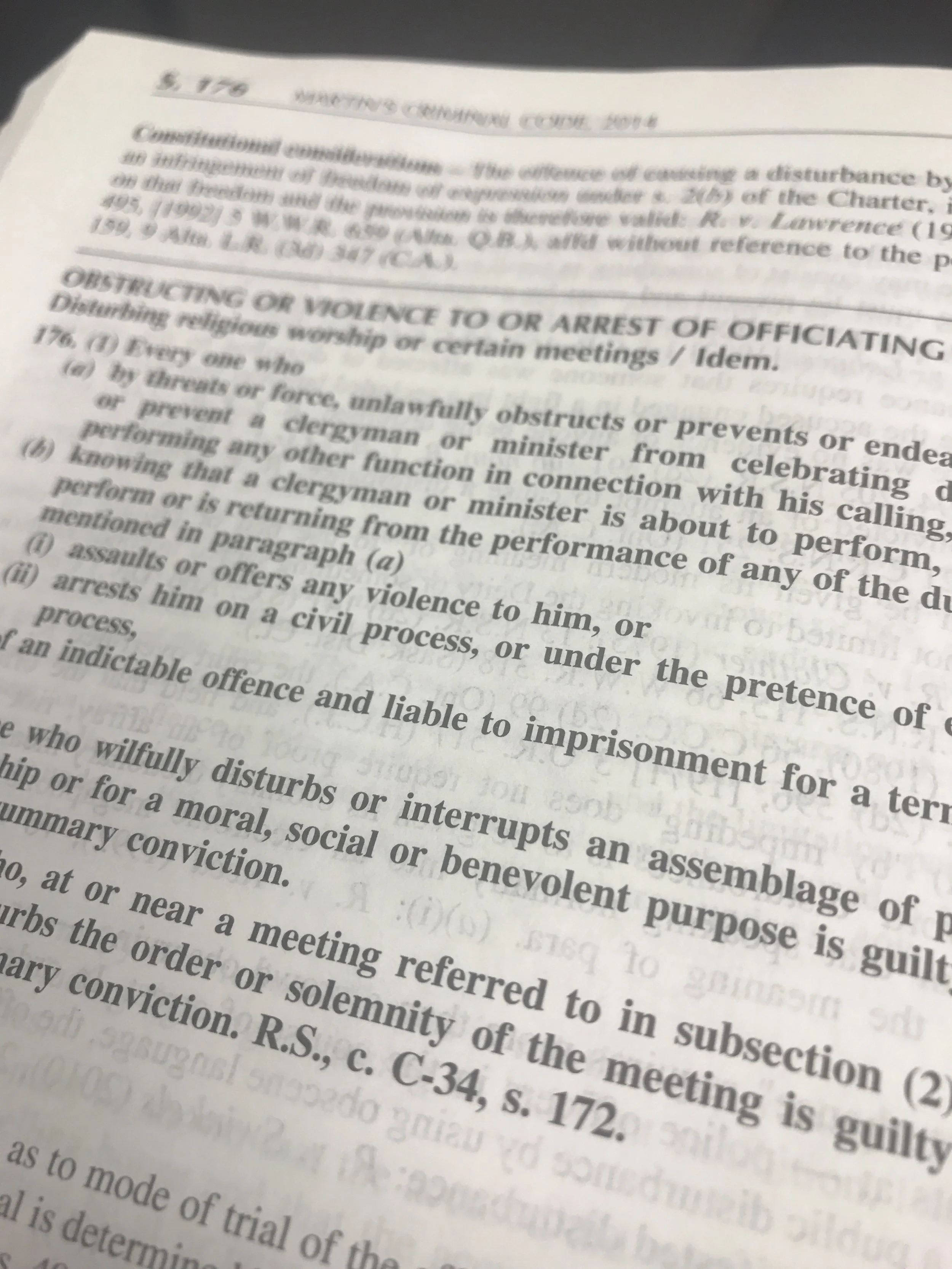"The right of parents to care for their children and make decisions for their well-being, including decisions about education, is primary, and the state’s authority is secondary to that parental right."
Justice Committee retains Criminal Code protections for religious expression and association
Protecting fundamental freedoms should never be seen as “obsolete”
Praying for the Church
“International law jealously guards religious autonomy”: CLF at the Supreme Court of Canada
"The right to autonomy of religious communities is a fundamental principle recognized in international law. Canada has agreed to uphold this principle in its international commitments. The present case demonstrates a need and presents an opportunity to expressly affirm religious autonomy in Canadian jurisprudence."
SUPREME COURT OF CANADA CLARIFIES SCOPE OF RELIGIOUS FREEDOM
Yesterday, the Supreme Court of Canada reaffirmed that government actors have a duty to specifically consider religious freedom concerns when raised by claimants in its Ktunaxa Nation v. British Columbia decision. This historic case – the first Indigenous religious freedom claim to be heard by the Supreme Court - raised questions about the scope of religious freedom, and the means by which religious communities can practise and manifest their faith. Christian Legal Fellowship (CLF) and The Evangelical Fellowship of Canada (EFC) jointly intervened in the case.




